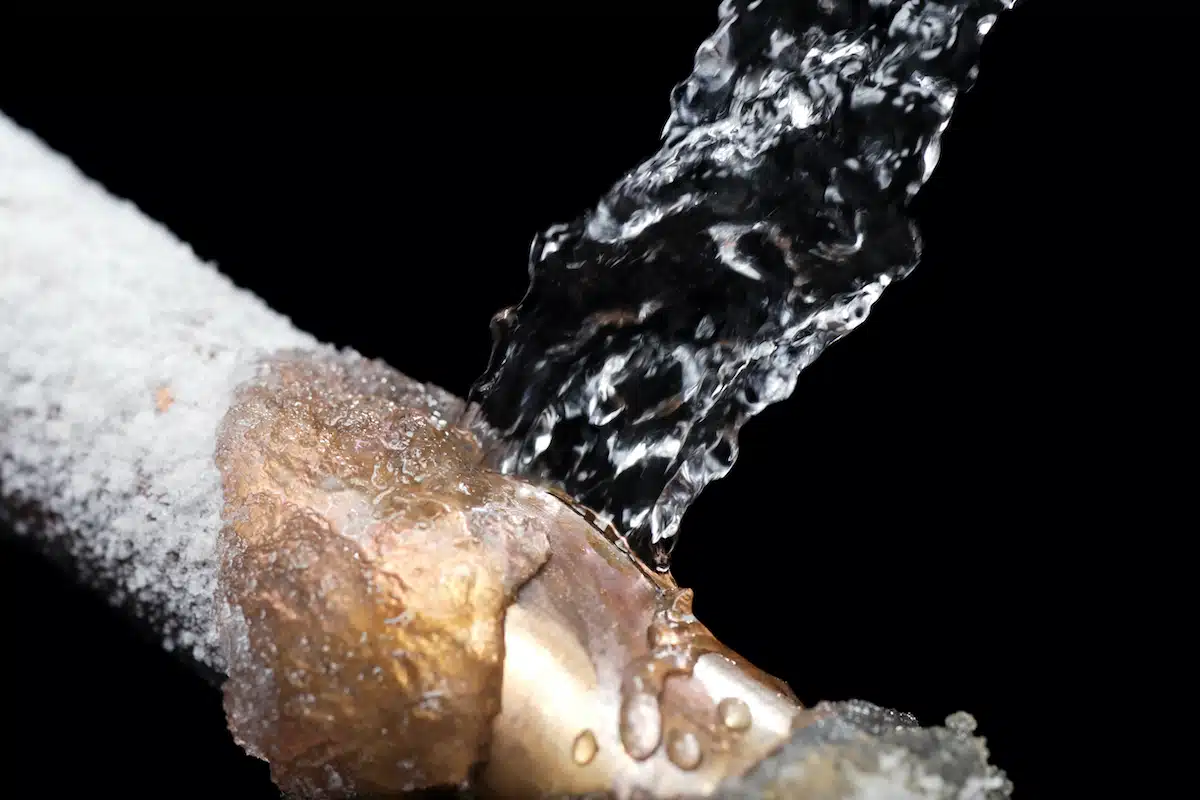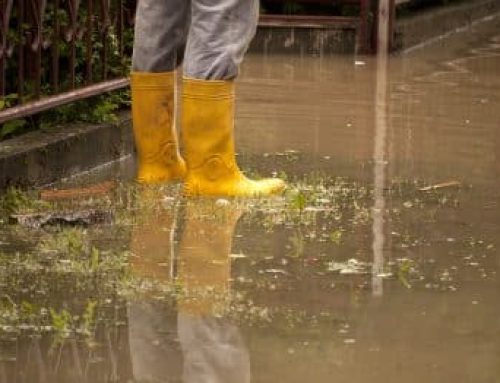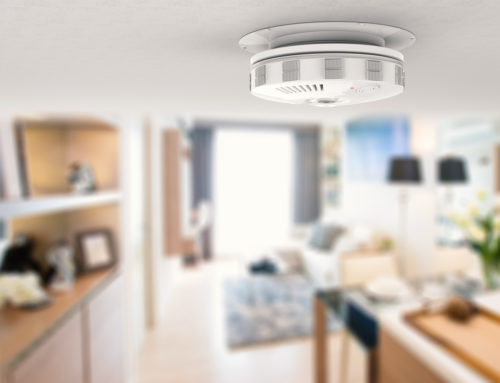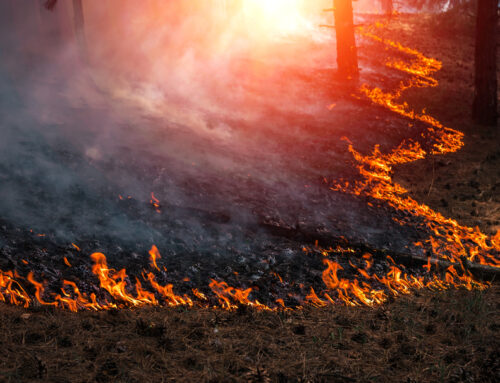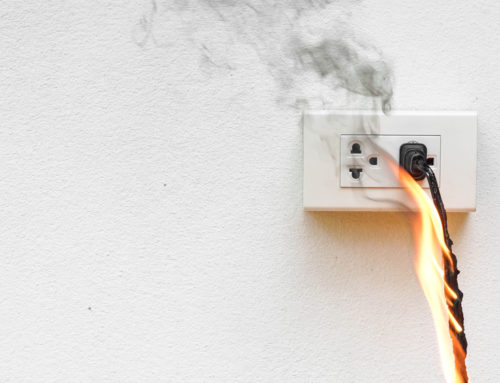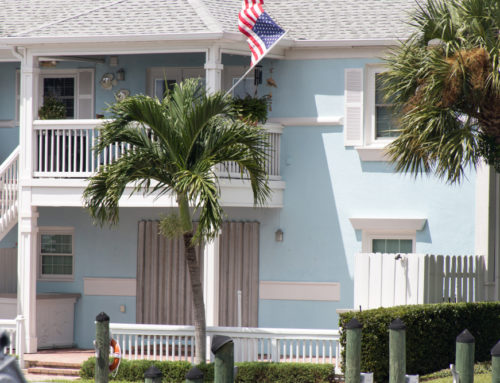Winter has made its presence known, but there is still time to winterize a vacant home. In this two-part series, we are looking at four winter perils from which you’ll need to shield your properties. In Part 1, we addressed ways to protect occupied properties and this time, we’ll cover vacant properties and renovation projects. If you’re leaving a house unoccupied for the winter, keep reading.
*If you haven’t yet read Part 1 of this series, go here to read it now.
Theft & Security
Security is the common thread that runs through any solid mitigation plan when winterizing a vacant home/property and rehab projects. Protecting these properties from various types of winter losses also requires a proactive approach to security. Not only can implementing a security plan assist you in preventing theft, but it can also reduce the chance of water loss, keep fires at bay, and help you sidestep serious liability issues.
Why you should have security at a vacant house
- An evicted renter may be tempted to come back and damage the property, or even burn it down, once their belongings are out.
- Trespassers in the neighborhood may be looking for a place to find shelter from the elements. If there isn’t a fireplace in the home, they may start a fire in a more dangerous location…like the middle of the living room.
- Someone looking to hide illegal drug activity may find your vacant property to be the ideal spot to set up a lab or illegal substance distribution center.
- Your property may become the perfect party location for kids with nothing better to do over a holiday break.
- If the property looks abandoned, a vandal may see it as a good place to let off some steam or hone their graffiti skills. To an arsonist, vacant properties are prime targets.
- A thief who steals copper could leave your now-open plumbing system to spill all its contents into your investment for however long it takes for someone to discover the breach.
Layer Your Security and Monitor, Monitor, Monitor
A good security plan includes a multi-faceted approach including an increased presence on-site. You or your property manager should drive by on a regular basis, keep the mailbox clear and keep the yard tidy. Getting the neighbors involved as a second or third pair of eyes can also be extremely helpful. If the property will be vacant for some time, you may need to board it up and still make sure the condition of your property sends a message that it is being looked after. Lastly, layer your security with good lighting, door and window reinforcement, and an alarm. Do whatever you can to encourage thieves and vandals to move down the block to a more vulnerable target.
Related Reading: 8 Great Ways to Protect Vacant & Renovation Properties
Water Damage
When people think about winterizing a vacant home, water damage is the first item they typically think of. No doubt about it, one of the worst messes to walk into is a vacant property that has experienced a burst pipe. Water damage is one of the most frequent losses we see and repair costs can easily climb into the tens of thousands if a leak isn’t discovered quickly. Picture indoor icicles and all kinds of ice sculptures. We have even seen a basement literally filled with ice, forming a “basement ice cube”. To add yet another complication, if the weather turns warm within a day or two after the burst, you can also end up with a gross -and expensive- mold problem.
When do pipes burst?
- When the temperature rises after a freeze. Though a burst pipe can occur when the temperature drops, it is often not discovered until the temperature rises enough for some of the ice to melt and the water pressure to return. The pipe may split during the freeze and then finally leak during the thaw.
- During a theft. A thief is not concerned about leaving the water rushing through the house as they run out the back door – they are there to remove any valuable items and make a rapid exit! During the time it takes for someone to discover the breach, water just keeps running continuously throughout the house, damaging sheetrock, flooring, timing, and more.
- Carelessness during the renovation phase. As plumbers work on water lines, small water leaks can occur from time to time during normal construction. What you want to avoid is a major water catastrophe. If your crew is supposed to shut the water off when they leave for the day or someone doesn’t take care to shut the water off before performing major plumbing work, it could cause significant setbacks to the completion of the project and potentially impede your ability to pay your contractor for any quality work that they have done.
How to keep pipes from freezing in a vacant house
- Shut the water off. Turn off the water at the street and drain the plumbing system in your vacant properties. At the very least, shut the water supply off in the house itself. That way, if you do have a breach in your plumbing system, the amount of water will be limited to what is currently in the pipes.
- Insulate pipes, especially those on exterior walls. Don’t forget water lines that lead to a garage sink or that run to your hose on the outside of the house. Hose bibb covers can also help prevent outdoor spigots from freezing.
- Remember that insulation does not generate heat. Make sure your HVAC system is in good working order and heats the whole house adequately. If you haven’t done an annual check-up of your HVAC system yet, get one scheduled before your tech’s schedule fills up!
- If you are renovating or showing a house and feel you must keep the water on, be sure to:
- Keep the heat above 55 degrees. You may be tempted to save on the heating bill by turning the thermostat down but remember that the air inside the walls is typically colder than the inside of the home.
- Open cabinet doors below sinks to allow warmer air to circulate through those areas.
- During cold snaps, leave faucets on a slow drip. Allowing water to continuously flow through the pipes may help prevent it from freezing.
- Instruct contractors on how to assist you with protecting the property. If you leave them in charge, you need to be able to count on their diligence in protecting the property while they are there and away.
- Make sure any real estate agents showing your property don’t undo your winterization efforts by turning the water back on. This goes for home inspectors too!
- Take time to plan and implement a solid security plan. As we discussed above, a thief doesn’t care what they damage to get the goods they want. Keeping them out is the best way to avoid damage.
Related Reading: Stop Ice Damage by Doing Two Things at Your Property
Fire Damage
About as frequent as water losses, fires are among the costliest losses we see to investment properties. Not only are they extremely destructive to the structure, fires can lead to serious injuries or in some cases, death. For this reason, fire prevention is of the utmost importance when winterizing a vacant home.
How to prevent vacant house fires
- Regular inspections. Aside from driving by your vacant properties, you will also need to periodically inspect the interior. These inspections give you an opportunity to make sure there aren’t any maintenance items that have popped up while you are away. Visiting your project during a reno not only gives you eyes on the progress, it also helps you confirm whether or not the job site is kept clean and free of fire hazards or other safety issues.
- Smoke and CO alarms. You will want anyone working on the property to be able to get out safely should there be a fire or Carbon Monoxide emergency. Aside from keeping workers safe, maintaining working smoke alarms are typically part of the fire code, and often a requirement of your insurance policy. (You may be required to have these in place and working in order to be covered for a fire loss.) Change all batteries at least twice a year and replace the alarms themselves every 10 years. Carbon monoxide alarms are important because the alarm is the only way to detect a problem. CO is odorless, colorless, and tasteless, which is why they call it the “silent killer.”
- Fire Extinguishers. Along with smoke and CO alarms, place fire extinguishers in all common areas, such as hallways, the living room, kitchen, basement, and garage. Follow the manufacturer’s instructions for maintenance. Extinguishers can keep a small fire from becoming a larger, more dangerous, and more destructive one. With all the power tools in use on a rehab project, these are a must for any job site.
Related Reading: 5 Ways to Evade a Fire in the Fourth Quarter
Liability Issues
Though you should keep up with maintenance items to avoid injuries year-round, the risk can increase substantially during winter, meaning the potential for multiple lawsuits with your name on them. With the potential of risks caused by ice, such as a slip-and-fall, it is crucial that you eliminate any potential hazards, even if just for the mailman. Someone may also try to hold you responsible if they get injured while trespassing on your property!
How to avoid a liability issue during the winter
- Make sure all walkways, driveways, and stairs are in good repair. There should be no uneven surfaces or no loose handrails.
- Make sure walkways and driveways are cleared during inclement weather. If this is your property manager’s job, check to make sure that it is actually getting done. Be sure they understand the importance of keeping up with this simple item. It could also keep them out of hot water.
- Maintain your trees. Ice storms can cause weak limbs to break, falling on any objects (or people!) below. They may also uproot an unstable tree. Winter is actually a good time to have an arborist tend to your tree; without its leaves, they can more easily look for any structural issues.
- Specify in the lease where guests and construction crews are to park. It will keep guests safer and could help you avoid potential fines as the property owner.
- During your scheduled inspections of vacant properties make sure you remedy any hazardous conditions, such as:
- Wires protruding from walls or ceiling – electric shock or fire hazard
- Missing light switch/outlet plates – electric shock hazard
- Broken stairs/loose or missing handrails – injury hazard
- Leaky pipes – water damage to property and possessions
- Broken windows – safety hazard
- Exposed nails – injury hazard
- Flickering lights – electric shock or fire hazard
- Mold/mildew – a health hazard
Additional Considerations for Renovation Projects
Your general contractor should have a plan in place for keeping the job site fire-free. You will want to know what that is along with any other safety precautions they take before they step one foot on the job site. Don’t hire someone who hasn’t thought this part of the job through as it can leave you exposed to an array of unknown and costly liabilities. And of course, always make sure anyone you hire is properly licensed and insured for the type of work they will be performing.
Related Reading: 10 Tips to Help Eliminate Holiday Liabilities

